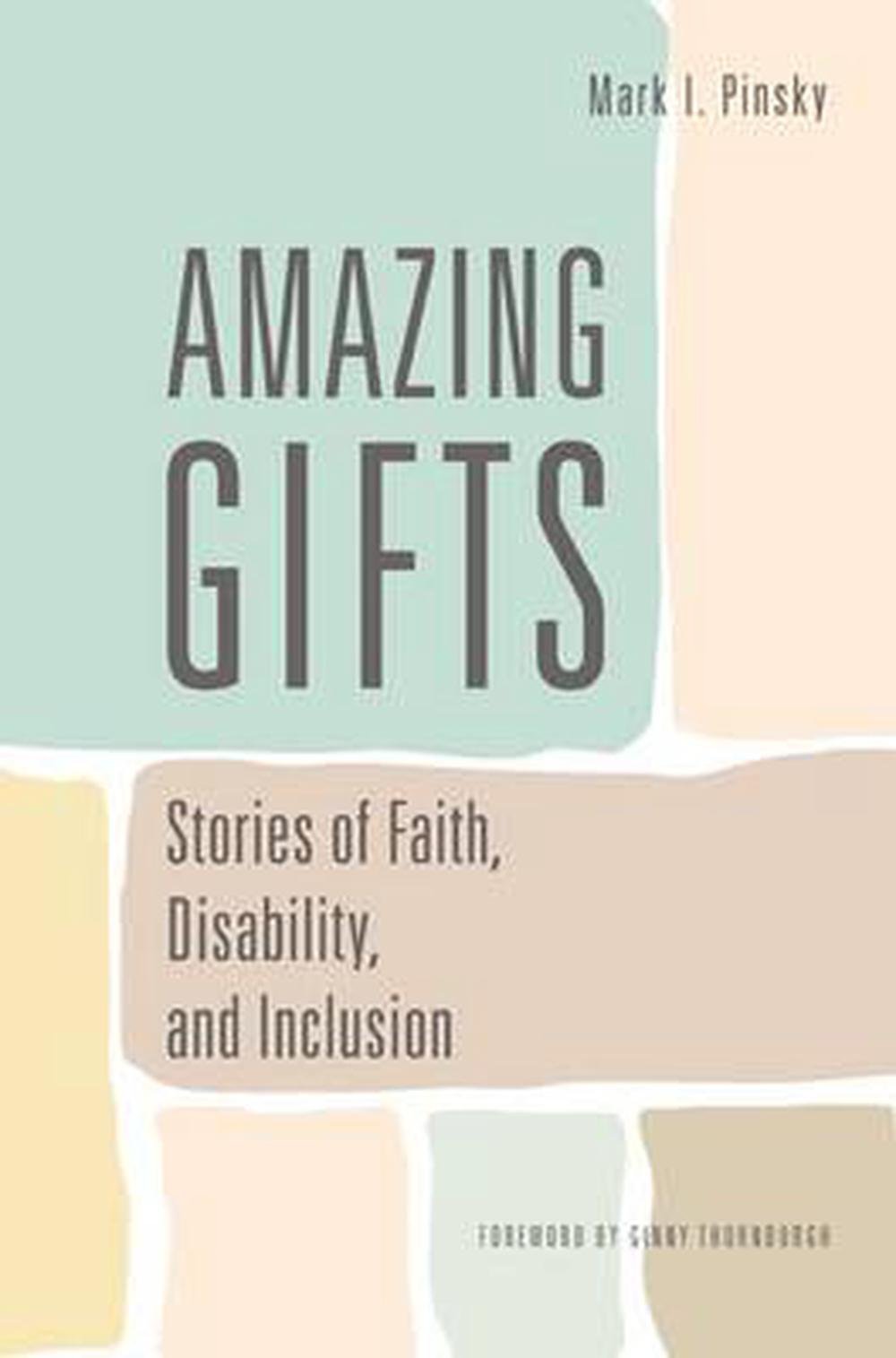Amazing Gifts
Amazing Gifts: Stories of Faith, Disability and Inclusion
by Mark I. Pinsky
Released March 2012 by Alban Institute
Amazing Gifts: Stories of Faith, Disability, and Inclusion is a new publication by noted religion writer Mark I. Pinsky. Pinsky has gathered stories from churches, synagogues, mosques, and temples across the country, “stories of people with disabilities and the congregations where they have found welcome.” He has taken special care to include the widest range of disabilities, including non-apparent disabilities like lupus, chronic pain, traumatic brain injury, depression, and mental illness. There were 54 million American with disabilities as of 2000, and that number is now being swelled by wounded warriors from the Afghan and Iraq wars and an aging population.
The author emphasizes that his purpose is to not to write a resource manual on accessibility and inclusion. Rather, Pinsky seeks to share stories of how people with disabilities have experienced their faith in the context of their disability, and how congregations have gained when they value the gifts that people with disabilities bring along. “This book,” notes the author, “is for congregational leaders and others who may have no expertise or personal experience with disability, but who make the congregational decisions about accessibility and inclusion.”
Articles about the Book
Amazing Gifts: Stories Of Faith, Disability, And Inclusion
Churches, synagogues, mosques and temples are places where people with disabilities might not expect to feel excluded, isolated or patronized, but that has often been the norm. For years congregations have effectively excluded people with disabilities from worship — whether by steps and narrow doorways or by straitened attitudes — or segregated them in “special” services. (read more)

Churches mustn’t neglect the disabled
In the Gospel of Luke, early Christians are urged to “invite the poor, the crippled, the lame, the blind” (14:13) to their gatherings. But how far can — or should — modern religious congregations go to accommodate people with physical or intellectual disabilities? (read more)
The television commercials were disturbing: Traditional-looking churches barring or physically ejecting racial and ethnic minorities, gay couples—and people with disabilities. One tag line was “Jesus didn’t turn people away. Neither do we.” The national campaign, which aired several years ago, was sponsored by the liberal United Church of Christ. “We included people with physical disabilities in these commercials—in a wheelchair or with a walker—as an extension of the call and hope that churches would be intentionally inclusive of ‘all the people,'” said the Rev. Gregg Brekke, a spokesman for the denomination. (read more)

Disability Concerns By Mark Stephenson
Author Mark Pinsky writes that the intended readers of this book are “ . . . people of religious faith who may have no expertise or personal experience with disability but who, as congregation members and clergy, make the congregational decisions about accessibility and inclusion.” (p. 305) In the introduction, he articulates the book’s purpose, “Making your congregation welcoming and accessible can be done because it has been done — somewhere, as you will see, by people just like you. I hope that after reading these stories you can replicate what has been successful, avoid what has failed, and most important, generate creative programs of your own.” (p. xxvi) (read more)
